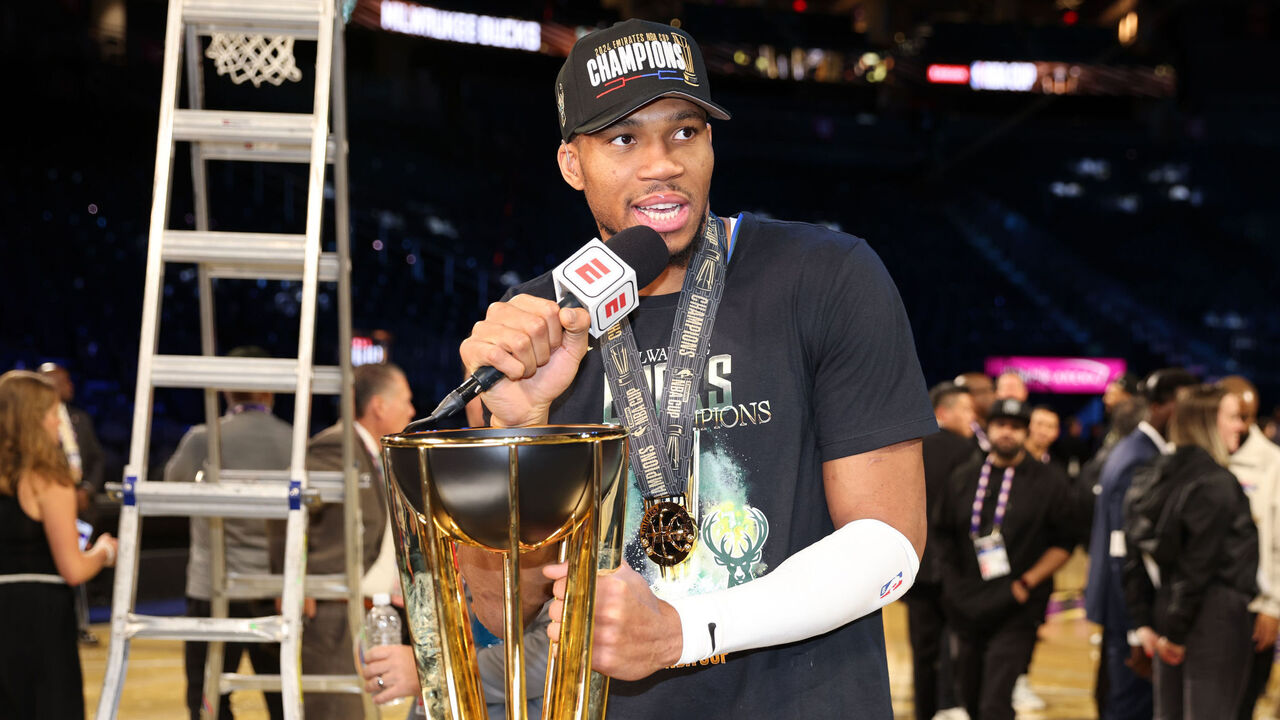More March Madness isn't better
March Madness has for decades been one of the few sporting events that everyone who follows it generally enjoys.
And so, of course, officials can't stop themselves from screwing around with it.
NCAA president Charlie Baker said last week that the men's basketball tournament, previously expanded from 64 to 68 teams, is now looking at becoming a 72- or even 76-team field.
"Those have been the numbers the basketball committee (has) talked about," said Baker, adding that the goal is to expand in time for the 2026 edition of the tournament.
It's difficult not to be cynical about this. There are two main motivating factors, neither of them good. The first is that expanding the field would leave fewer unhappy teams on Selection Sunday. The NCAA has no plans to eliminate the 31 bids that automatically go to conference champions, so adding four or eight slots to the field would grant more spaces to those teams from big conferences that find themselves on the wrong side of the bubble. Expansion wouldn't be about adding a few more potential Cinderellas to the big bracket, but including schools that fell just short of a 68-team field - those that had mediocre seasons in a tough conference or made an early exit from their conference tournament.
Power conference coaches have long lamented that championship teams from, say, the Mid-Eastern Athletic Conference grab a tournament berth from a team that might be fifth or sixth best in a power conference, even if the team that missed out would likely pummel the small school in a head-to-head matchup. Expanding the field would give a few more of those power programs the chance to sneak in and make hay.
The other reason for expansion is money. More games means more television product means more cash for the NCAA. There's some doubt as to whether rights holders would be interested in paying more for a handful of games that might not add much to the broadcast schedule. But the NCAA would simply be following the trend of the North American professional leagues, which are all trying to figure out ways to expand their postseason product so they can add those games - which are by far the most valuable from a viewership and advertising perspective - to the sales bundle.
Even if CBS and TNT weren't terribly interested in giving the NCAA more money for a few extra games in the short term, at some point, that broadcast package would go back to market with more product available than the last time it was sold.
But expansion proponents overlook the fact that adding spaces to the postseason tournament lowers the stakes of every other NCAA game. An extra eight spots, spread almost entirely among power conferences, would mean that teams that didn't even have particularly good seasons would scrape their way into March Madness on the basis of tough schedules and maybe a quality win or two.
Suddenly, the main thing on the line in a February game between two big-school conference rivals would be short-term bragging rights, since both teams would be confident the NCAA Tournament awaited next month.

Professional leagues, meanwhile, are already struggling with the devaluation of their regular-season schedules. The NBA added the play-in tournament and the midseason NBA Cup to try to add juice to the non-playoff part of the calendar while also bringing in rule changes to encourage - or force, really - star players to appear in more regular-season games. The league needed those rules because stars were skipping regular-season contests that had all but become meaningless.
Even the all-powerful NFL is considering changing its playoff seeding after teams started resting players in late-season games to get ready for the postseason. All of these things are the natural consequence of making the playoffs the be-all and end-all of your calendar. If all that matters is getting a ticket to the postseason, and a significant chunk of a league's teams will get there even in a middling year, then why should fans pay much attention during the regular season?
For a long time, college basketball was the opposite of college football, which had a chaotic regular season but lacked a true playoff. Even when football relented and created a four-team final bracket, the regular season still maintained most of its luster because it didn't allow much room for error. The introduction of a 12-team field last season made for some compelling games - and a lot of money - but the downside of such a big postseason tournament was already evident. There were arguments over whether a three-loss Alabama team should have gotten a berth over SMU, which lost for only the second time in the ACC championship game.
Those are Selection Sunday-type complaints: Give the spot to the big school with the tough record over the outsider with the better record.
The College Football Playoff, naturally, is also talking about expanding.
Scott Stinson is a contributing writer for theScore.
HEADLINES
- Kentucky AD Barnhart retiring in June
- Judge declares mistrial in Rashaun Jones trial over Bryan Pata's 2006 killing
- 7-foot alligator hisses, snaps at Florida's Sumrall during photoshoot
- Indiana's Cignetti cashes in with 8-year extension worth $13.2M annually
- Colorado quarterback Dominiq Ponder dies at age 23